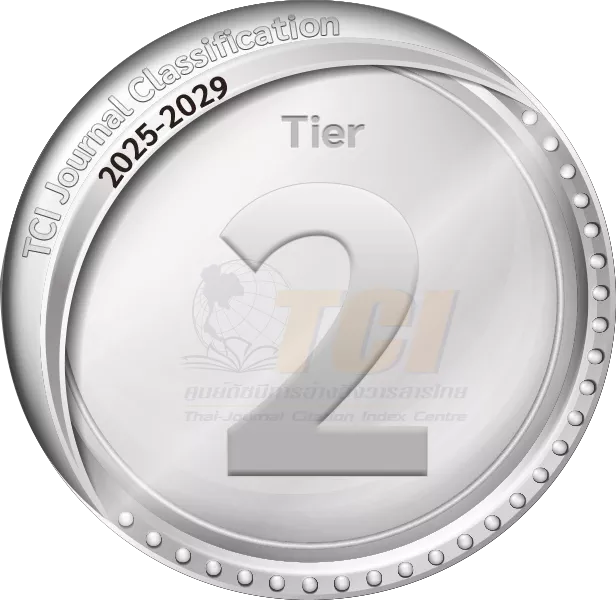Experiential Tourism Marketing to Create a Memorable Experience for International Tourist in Bangkok
DOI:
https://doi.org/10.14456/abacodijournal.2025.10Keywords:
Experiential Tourism Marketing, Memorable Tourism Experiences (MTES), Key Components Of MTES, Social Media Marketing, Cultural ExchangeAbstract
This study explores the role of experiential tourism marketing in creating memorable experiences for tourists in Bangkok, Thailand. The research aims to identify key components contributing to unique and memorable tourism experiences (MTEs), the influence of social media marketing, and the importance of cultural exchanges in enriching tourists' experiences. Primary data were collected using a purposive sampling technique through comprehensive in total, 20 interviews were conducted in English, at which point theoretical saturation was reached, providing insights into their perspectives on the factors that enhance their travel experiences. To analyze the qualitative data, a systematic approach involving labelling, open coding, and axial coding was used. In the labelling phase, key concepts and phrases were identified from the interview transcripts. Open coding was then applied to categorize the data into distinct themes, while axial coding helped to establish relationships between these categories. The findings highlight that tourists value eco-friendly practices, cultural immersion, and personalized experiences, all fostering deeper connections and long-lasting memories. Social media platforms, particularly Instagram and TikTok, play a significant role in shaping tourists' itineraries by providing reviews and recommendations from influencers. Additionally, there is a growing trend toward niche tourism experiences and community-based tourism that cater to individual interests. The study underscores the importance of leveraging authentic cultural engagement and user-generated content through social media to strengthen Thailand's position as a premier destination for memorable tourism.
References
Andersson, T. D. (2007). The experience economy: A new approach to the marketing of tourism. Journal of Travel Research, 46(2), 153-160.
https://doi.org/10.1177/0047287506293168
Bramwell, B., & Lane, B. (1993). Sustainable tourism: An evolving global approach. Journal of Sustainable Tourism, 1(1), 1-5. https://doi.org/10.1080/096695893094506966
Brent Ritchie, J. R., Wing Sun Tung, V., & Ritchie, R. (2011). Tourism experience management research. International Journal of Contemporary Hospitality Management, 23(4), 419-438. https://doi.org/10.1108/095961111111299688
Gudykunst, W. B. (1993). Toward a theory of effective interpersonal and intergroup communication: An anxiety/uncertainty management (AUM) perspective. International Journal of Intercultural Relations, 17(2), 191-219.
https://doi.org/10.1016/0147-1767(93)90039-B
Kim, E., Eves, D., & Scarles, C. (2009). Experiential tourism: A review of the literature. Journal of Travel Research, 47(4), 387-396.
https://doi.org/10.1177/0047287508326526
Kim, J.-H., Ritchie, J. R. B., & McCormick, B. (2012). Development of a Scale to Measure Memorable Tourism Experiences. Journal of Travel Research, 51(1), 12-25.
https://doi.org/10.1177/0047287510385467
Kim, Y., Xu, L., & Kim, J. (2018). A model of tourism experience and destination loyalty: The mediating role of destination image and the moderating role of satisfaction. Journal of Travel Research, 57(1), 10-20. https://doi.org/10.1177/00472875177051222
Kolb, D. A. (1984). Experiential Learning: Experience as the Source of Learning and Development. Prentice-Hall. https://doi.org/10.1016/B978-0-7506-7223-8.50017-4
Leung, D., Law, R., van Hoof, H., & Buhalis, D. (2013). Social media in tourism and hospitality: A literature review. Journal of Travel & Tourism Marketing, 30(1-2), 3-22.
https://doi.org/10.1080/10548408.2013.750919
McKercher, B., & Denizci Guillet, B. (2010). Are Tourists or Markets Destination Loyal? Journal of Travel Research, 50(2), 121-132.
https://doi.org/10.1177/0047287510362779
Mehmetoglu, M., & Engen, M. (2011). Dimensions of the experience economy in tourism: Experiential components in the experiences of Norwegian tourists. Scandinavian Journal of Hospitality and Tourism, 11(2), 269-287.
-https://doi.org/10.1080/15022250.2011.593358
Pine, J., & Gilmore, J. (1998, August). Welcome to the Experience Economy. Harvard Business Review. https://hbr.org/1998/07/welcome-to-the-experience-economy
Reisinger, Y., & Steiner, C. J. (2006). Reconceptualizing object authenticity. Annals of Tourism Research, 33(1), 65-86. https://doi.org/10.1016/j.annals.2005.04.003
Salerno, M. (2009). The Brazilian automotive industry: Historical background, development, current crisis and trends. ILO, Sectoral Activities Programme, Temap.
Smith, M. K., & Puczkó, L. (2009). Health and Wellness Tourism. Routledge. https://doi.org/10.4324/9780080942328
Varra, L., & Rossi, C. (2019). Role and Activities of Revenue Manager between Individual and Team Competencies: Empirical Evidence in a Tourist Destination. Journal of Service Science and Management, 12(07), 832-858. https://doi.org/10.4236/jssm.2019.127057
Volo, S. (2009). Conceptualizing experience: A tourist-based approach. Journal of Hospitality Marketing & Management, 18(2-3), 111-126.
https://doi.org/10.1080/19368620802590134
Vroom, V. H. (1964). Work and motivation. Wiley.
https://archive.org/details/workmotivation0000vroo
Xiang, Z., & Gretzel, U. (2010). Role of Social Media in Online Travel Information Search. Tourism Management, 31, 179-188. http://dx.doi.org/10.1016/j.tourman.2009.02.0166
Zeng, B., & Gerritsen, R. (2014). What do we know about social media in tourism? A review. Tourism Management Perspectives, 10, 27-36. https://doi.org/10.1016/j.tmp.2014.01.001



